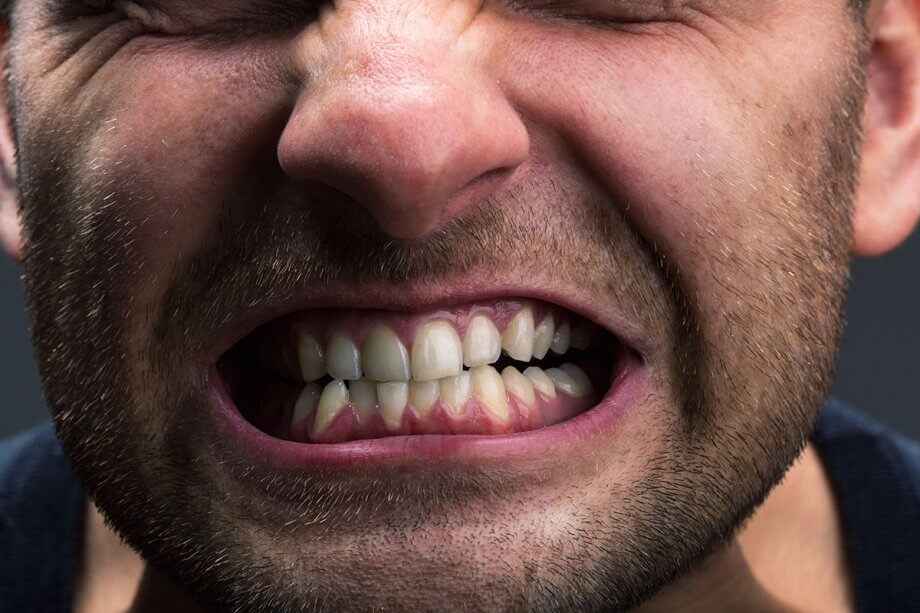Clinically known as bruxism, teeth grinding is an exceptionally common habit, especially during sleep. It may also happen during the day when lifting heavy objects, concentrating hard, or even driving. You may not know that you grind your teeth, or you might not know how to stop. Here is what you should know about this tooth-damaging, often painful condition.
Symptoms
The symptoms of bruxism are similar to those of TMJ (temporomandibular joint disorder), and the two conditions are often linked. Not everyone experiences teeth grinding the same way, but most people have some or all of these symptoms:
- Headaches
- Sore teeth or gums
- Jaw pain
- Enlarged facial muscles
- Stiff neck or shoulders
- Earaches
- Sleep problems
- Unusual wear patterns on teeth
- Fractured teeth
- Loss of tooth enamel
Causes
Besides TMJ, teeth grinding may have many causes, but stress and anxiety are among the most common. There is also a strong link between sleep apnea, snoring, and teeth grinding, so it is still unclear which disorder may be the root cause. Those with depression, heavy users of alcohol or caffeine, and smokers are more likely to grind their teeth.
Risks
Grinding the teeth weakens them, increasing the risk of breakage or even tooth loss. It also damages the tooth enamel, raising your risk for cavities and decay.
Grinding your teeth also puts unusual pressure on your jaw. Symptoms of TMJ, such as jaw pain and trouble opening and closing the mouth, are common among those who grind their teeth.
Treatment Options
There are many different treatment options for TMJ. If you are experiencing an underlying condition, such as anxiety or sleep apnea, it should be treated at the same time.
An occlusal appliance, such as a night guard or bite plate, can protect the teeth and jaw from damage. These custom-make plastic appliances are worn over the teeth at night.
If sleep apnea is suspected as the root cause, you may receive a mandibular advancement device. This is also an occlusal appliance that is worn overnight, but it is specially designed to keep the lower jaw forward. This prevents airway collapse while protecting the teeth.
Behavior modification can help with teeth grinding due to stress or anxiety. Meditation, relaxation exercises, and increased awareness of the grinding can help you learn to consciously stop the habit. It may be used in tandem with an occlusal appliance for maximum benefits.
Teeth grinding is a common problem. Left untreated, it can wear down your teeth and jaws, putting your oral health at risk. Fortunately, teeth grinding is high treatable. If you notice any symptoms, let your dentist know right away.
Ready to Get Started?
Now in our second generation of family ownership, McDonald Family Dentistry provides a full line of general, restorative, pediatric, and cosmetic dental services. Contact us today at 408-779-9335 to schedule your first appointment.
